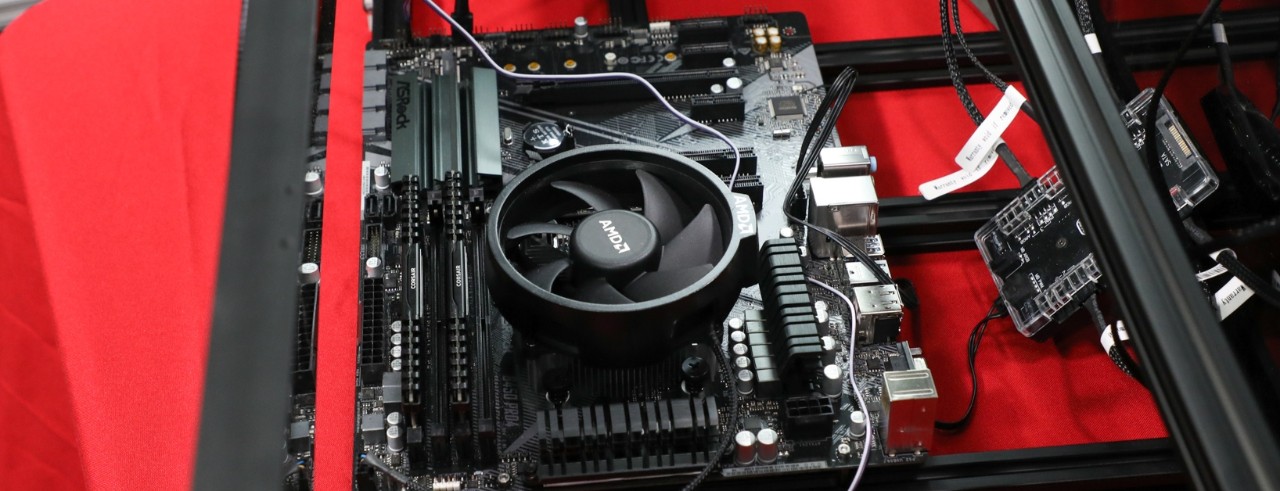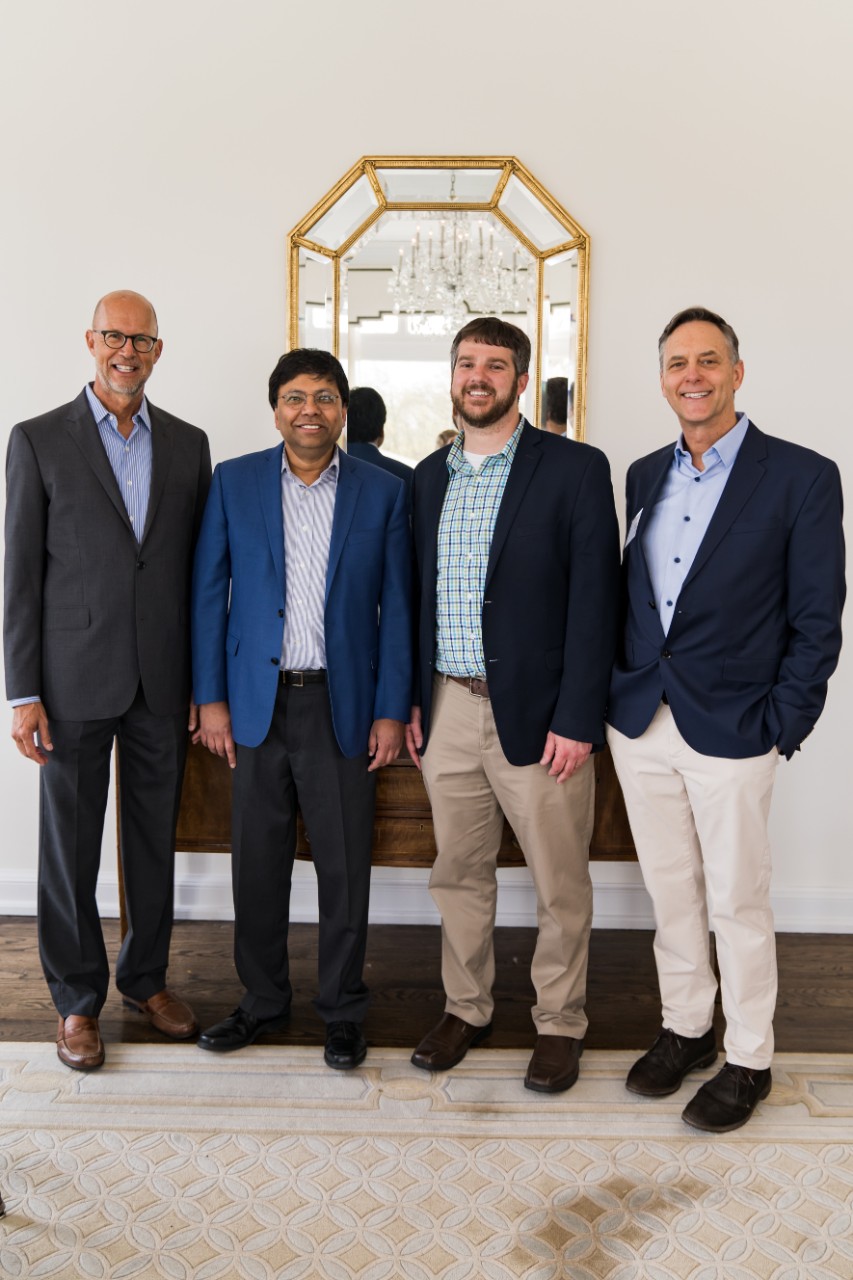
Gift creates cryptocurrency fund and named lab at University of Cincinnati
New programs will drive education and partnerships for the study and research of cryptoeconomics
Through a gift from longtime supporters Dan Kautz and Woodrow (Woody) Uible, the University of Cincinnati will launch two new programs studying cryptocurrency and new financial technologies. The gifts will create an educational program with the Carl H. Lindner College of Business for UC students and name a public-private lab space within the new Digital Futures building, set to open in fall 2022.
Dan Kautz is co-founder and co-owner of K&S Companies, a real estate development and management organization. Through his partnership with UC economics alumnus Woody Uible, BA ‘75, a principal at Bartlett Wealth Management and UC Foundation trustee, the Kautz-Uible Economics Institute was created at Lindner in 2019.
“Through the Kautz family and their outstanding named institute, Dan and Woody have long been forward-thinking and generous friends to our university,” said UC President Neville G. Pinto. “We are deeply grateful for their ongoing partnership and this new lab that will open more doors for our students and bring new partnerships across our growing campus.”
Experiential education in blockchain and cryptocurrency

Woody Uible, Debashis Pal, Michael Jones and Dan Kautz.
Because of the generous gift, the Lindner College of Business is now home to a cryptocurrency fund that will promote student learning of blockchain technology and digital assets.
“Thanks to Dan and Woody, our students will gain hands-on, experiential education in this new frontier of financial technology,” said Dean Marianne Lewis, PhD. “Our students will learn how to manage cryptocurrencies and how such digital assets impact our economy, positioning UC as the regional leader and among the top universities nationally with this kind of program.”
This new cryptocurrency lab and fund will provide students with the experience and knowledge vital to work for digital asset companies. These capabilities will complement how the college’s Johnson Investment Counsel Student-Managed Fund and Investment Lab, as part of the Johnson Investment Institute, empower hands-on education in equity valuation and portfolio management.
“Blockchain and the underlying application of cryptocurrency is at the cutting edge of business innovation and management. It is important that UC students be informed and educated about this technology,” said Uible. “We feel that students will learn more by participating in the process of trading crypto currencies and directly working with a blockchain. That experience is much more valuable and meaningful than just learning from a textbook.”
Debashis Pal, David Sinton Professor of Economics and Kautz-Uible Economics Institute director, said this program will ultimately prepare students for better jobs.
“A recent LinkedIn report identified Blockchain as the most in-demand hard skill. Students who work with the cryptocurrency fund will develop immediate and relevant knowledge about the fast-growing digital asset industry,” said Pal. “Educational programs from the Kautz-Uible Economics Institute will establish the University of Cincinnati as a thought leader in this cutting-edge technology.”
Thanks to Dan and Woody, our students will gain hands-on, experiential education in this new frontier of financial technology.
Marianne Lewis, PhD Dean, Lindner College of Business
The Kautz-Uible Cryptoeconomics Lab
Included in the gift is the first named lab in UC’s new Digital Futures building. The 180,000 square-foot building, located in the Cincinnati Innovation District, is set to open in fall 2022, and will include space for labs and classrooms focused on applied research and public-private partnerships on technology, transdisciplinary research and digital expression.
The Kautz-Uible Cryptoeconomics Lab, led by Kautz-Uible Economics Institute academic director Michael Jones, PhD, will establish a space for corporate partnerships for the research of cryptocurrency and blockchain technology.
“Blockchain technology is the future of the digital economy,” said Jones, “and this gift enables UC students and faculty to conduct cryptoeconomic research with corporate partners. Companies like Ledger SAS are supporting the lab in order to publish best practices on how to safely store, transmit, and exchange digital assets.”
Similar higher education labs for the study of cryptocurrency exist at Stanford University and Massachusetts Institute of Technology.
“The study of cryptoeconomics is so important for our students’ future. Judging from classroom experience and events, it’s a subject they are particularly excited about,” said Kautz. “The possibilities are endless, and they all add up to huge benefits for UC and our students. Blockchain is evolving and the Cryptoeconomics Lab will evolve with it to keep UC at the forefront of this expanding technology.”
Featured image at top: Cryptocurrency mining rig that will be available at the Kautz-Uible Cryptoeconomics Lab in UC’s new Digital Futures Building. Photo/Lindner College of Business.
Next, Now
With its focus on innovation and impact, Next, Now: The Campaign for Cincinnati is where ambition meets action. At the University of Cincinnati and UC Health, we’re driven by next; thinking bolder and dreaming bigger to create the tomorrow we envision, today. Learn more at nextnow.uc.edu.
Related Stories
UC's first Marian Spencer Scholar set to graduate
April 16, 2025
Katelyn Cotton, an alum of Cincinnati's Walnut Hills High School, is the first Marian Spencer Scholar to graduate from the University of Cincinnati. Cotton, a political science major, will return for graduate school. She hopes to attend law school in the future.
UC hosts talk on applying geography to business
Event: April 17, 2025 2:00 PM
UC's Department of Geography will play host to guest speaker and Bentley University Professor Joel Deichmann who will discuss ways economic geography can be applied to business majors.
$5 million gift supports University of Cincinnati regional...
April 15, 2025
An anonymous donor has made a $5 million gift to the University of Cincinnati to support its regional colleges, UC Blue Ash College and UC Clermont College. This generous donation will provide paid internships and co-ops, expanded career services offerings and more scholarship support for students at both colleges. Since 2018, this anonymous donor has given UC $7.26 million; earlier gifts were to UC Clermont.